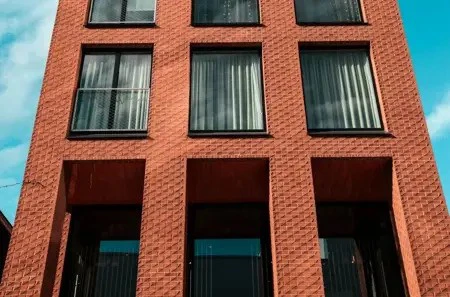 Written by: Danny Belton - Head of Lending
Written by: Danny Belton - Head of Lending
Getting a leasehold buy-to-let mortgage
There are several key differences between buying a leasehold property compared to a freehold. Mainly that there is usually a third party involved in the process. This would be the freeholder, or the primary owner of the building. In some cases it may be the developer who owns the block of flats or a housing association.
You as the landlord buy the property and then rent it out, but at the end of the day the property may still be outright owned by someone else and may contain some terms and conditions that need to be investigated and agreed to.
How long should the lease be?
You should have at least 80 years remaining on the lease. Most lenders won’t consider giving a mortgage on flats with less than 70 years, as it can affect the value of the property. That’s because the cost of extending the lease can increase and the freeholder may decide not to renew it at all (although that’s very rare).
What deposit do you need when raising finance for flats?
You might need a higher deposit than for a freehold property of the same value. Lenders tend to offer lower loan to values on leasehold properties, usually depending on the length of the lease.
While there isn’t strictly a set average, you will usually need at least 25% of the property value as a deposit.
The smaller the flat block, the better
Most lenders prefer flats in buildings of five floors. The reason for this is that as the number of flats in a block increases, so does the likelihood of them being let out. That increases the risk of management and maintenance problems, which affects the overall value of the property.
If you’re looking for a high-rise of more than 7-10 storeys, you may only find a limited number of lenders willing to consider your application. In addition, lenders like to limit their exposure to a maximum of 10% of the units in a block, so you might find that certain deals aren’t available to you, simply because that lender has already hit its maximum number of loans.
Studio flats
If you’re buying a studio flat, you should be aware that around half of lenders won’t consider lending on studios at all. Of those that do, nearly all will require the property to be a minimum size of 30 sqm.
Do you have a portfolio of properties?
Lenders consider the profitability of every property in a portfolio, not only the projected returns on a specific rental property being refinanced.
Because managing multiple rentals can be complex, lenders need to be extra sure you can handle it financially. They’ll use a unique underwriting process to assess your personal situation.
What does this mean for you? Essentially, lenders will look beyond your experience as a regular landlord to ensure you have the skills and resources to manage a portfolio of mortgaged properties.
Age and income matter
Many lenders recognise that older property investors bring valuable experience to the table and may have built up substantial portfolios. They may be more open to offering good deals for seasoned borrowers who have a long track record of successful landlordship.
It’s also important to note that some lenders may consider additional income sources that aren’t factored into traditional affordability calculations. A specialist broker can help you find lenders that look beyond the traditional income picture.
Property age and condition
While lenders may be cautious about older properties, especially ex-local authority blocks, it’s the overall condition that matters most. Properties with neglected communal facilities can be a red flag, so focus on well-maintained properties.
Get expert, specialist mortgage advice
If you are considering buying a leasehold property, especially flats, seek advice from ALEP, an association of residential leasehold specialist organisations. For mortgages, talk to an expert mortgage adviser who can advise you on securing a mortgage and raising finance for flats.
For a free initial consultation, get in touch with us today. Got more questions? Don’t hesitate to reach out and ask! We’re always on hand to help.
Frequently asked questions
Some lenders require a flat to be a minimum of 30 square metres, but most have no restrictions.
Flats can be cheaper than freestanding houses, and are thus ideal for a first property investment. They’re often more energy efficient and can return a decent rental yield.
Anywhere between 5-8% is considered good rental yield for a flat.
You need about 25% of the property’s purchase price.
There isn’t a minimum income, it depends on how much the property is worth and the rent you charge.
Important information
There is no guarantee that it will be possible to arrange continuous letting of the property, nor that rental income will be sufficient to meet the cost of the mortgage.
Your property may be repossessed if you do not keep up repayments on your mortgage.
There may be a fee for mortgage advice. The actual amount you pay will depend upon your circumstances. The fee is up to 1% but a typical fee is 0.3% of the amount borrowed.
Related Articles
No posts currently available
No posts currently available

